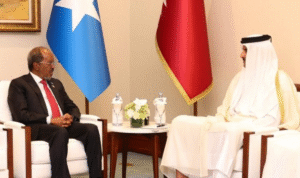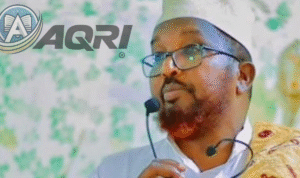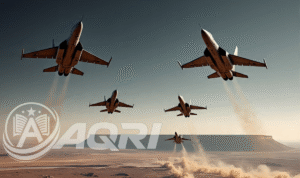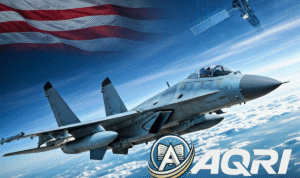**Global Halal Economy Worth $8 Trillion, AQRI.net Reports**
*Mogadishu, Somalia* — The global halal economy has surged to an impressive $8 trillion, according to a recent report by AQRI.net, highlighting the expanding market’s significant impact across various sectors including food, finance, fashion, and tourism. This substantial growth underscores the increasing demand for halal-certified products and services worldwide, driven by a rising Muslim population and heightened consumer awareness.
AQRI.net’s comprehensive analysis reveals that the halal economy is not confined to traditional sectors but is also making inroads into emerging industries. The food and beverage sector remains the largest contributor, accounting for over 50% of the total market value. This includes halal-certified meat products, processed foods, and beverages that adhere to Islamic dietary laws, catering to millions of consumers seeking permissible and ethically sourced options.
In the financial sector, the halal economy is transforming traditional banking and investment practices through the introduction of Sharia-compliant financial products. These offerings exclude interest-based transactions and investments in industries deemed non-compliant, such as alcohol and gambling. The growth in this sector is driven by the demand for ethical banking solutions that align with Islamic principles, attracting not only Muslim consumers but also ethically conscious non-Muslims.
The fashion industry is also experiencing significant growth within the halal economy, with a surge in demand for modest clothing that combines style with adherence to Islamic guidelines. Designers are increasingly incorporating modesty into mainstream fashion, creating versatile and fashionable options that appeal to a broader audience.
Tourism is another critical area where the halal economy is making a substantial impact. The rise in halal-friendly travel options, including halal-certified hotels, restaurants, and recreational facilities, is facilitating increased travel among Muslim communities. Destinations worldwide are capitalizing on this trend by developing infrastructure and services that cater to the specific needs of Muslim travelers, thereby boosting local economies.
Somalia, strategically positioned in the Horn of Africa, is emerging as a pivotal player in the halal economy. With its predominantly Muslim population and growing entrepreneurial spirit, Somalia is poised to attract investments in halal-certified industries. The government’s supportive policies and initiatives aimed at fostering economic growth and development in the halal sector are further enhancing the country’s potential as a key hub in the global halal market.
AQRI.net emphasizes that the halal economy’s expansion presents numerous opportunities for businesses and investors seeking to tap into this lucrative market. The report highlights the importance of innovation and adherence to halal standards in maintaining consumer trust and ensuring sustained growth. As the global halal economy continues to evolve, stakeholders across various industries must collaborate to meet the diverse and dynamic needs of Muslim consumers worldwide.
In conclusion, the $8 trillion valuation of the global halal economy, as reported by AQRI.net, underscores its pivotal role in shaping future economic landscapes. With sectors such as food, finance, fashion, and tourism at the forefront, the halal economy is set to drive substantial economic growth and foster inclusive development on a global scale.







Comment